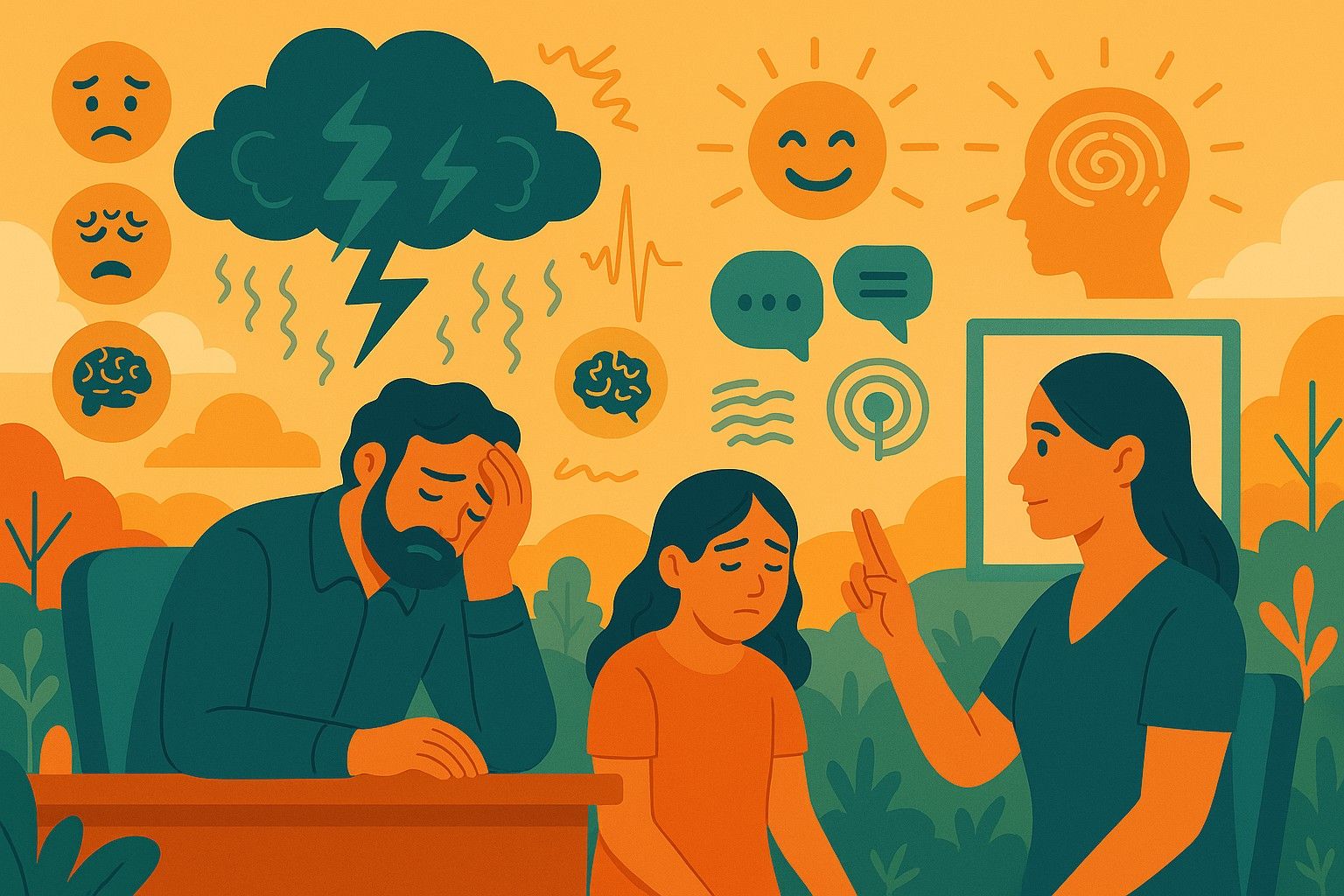Chronic stress can feel like a constant weight on your shoulders, impacting your energy, mood and physical health.
Chronic stress is a prolonged state of emotional or physical tension that occurs when you face ongoing challenges without sufficient relief or recovery.
Chronic stress manifests in various ways, affecting both your mind and body. Symptoms can build up over time and can impact your overall health and well-being. Here’s an overview:
Symptoms of Chronic Stress
Physical Symptoms:
- Fatigue: Persistent tiredness that doesn’t improve with rest.
- Sleep Problems: Insomnia or difficulty staying asleep, which can worsen fatigue.
- Headaches or Migraines: Frequent or intense headaches triggered by prolonged tension.
- Muscle Pain or Tension: Aches in the shoulders, neck, or back due to constant physical stress response.
- Weakened Immune System: Increased susceptibility to illnesses like colds or infections.
- Digestive Issues: Upset stomach, nausea, constipation or diarrhoea.
Emotional Symptoms:
- Irritability or Anger: Feeling easily frustrated or short-tempered.
- Anxiety or Worry: A constant sense of dread or nervousness.
- Depression: Feelings of sadness, hopelessness, or loss of interest in activities once enjoyed.
Cognitive Symptoms:
- Difficulty Concentrating: Trouble staying focused or making decisions.
- Memory Problems: Forgetfulness or impaired recall.
- Racing Thoughts: A mind overwhelmed with constant worries or ‘what-ifs’.
Behavioural Symptoms:
- Avoidance: Withdrawing from responsibilities, work or social interactions.
- Unhealthy Coping: Overeating, smoking, drinking alcohol or other destructive habits.
Effects of Chronic Stress
If left unaddressed, chronic stress can have severe long-term consequences. These may include:
Physical Effects:
- Cardiovascular Problems: High blood pressure, increased risk of heart attack or stroke.
- Weight Changes: Unintentional weight gain or loss due to appetite changes.
- Chronic Pain: Worsened conditions like migraines, arthritis or other pain syndromes.
Mental Health Effects:
- Increased Risk of Anxiety Disorders: Chronic worry or panic attacks.
- Depression: Prolonged stress often contributes to the onset of depressive episodes.
- Burnout: Feeling emotionally and physically drained with little motivation.
Effects on Relationships:
- Strain on personal and professional relationships due to irritability or withdrawal.
Work and Productivity:
- Reduced efficiency, lack of focus, and higher absenteeism can result from prolonged stress.
The impact of chronic stress is far-reaching, but the good news is that there are effective ways to manage and treat it.
Psychological therapy is an effective tool for managing chronic stress, offering a safe and supportive environment to explore your stressors and develop effective coping strategies.
– Mr. Jerry Jacob, Assistant Professor
Dept. of Clinical Psychology

